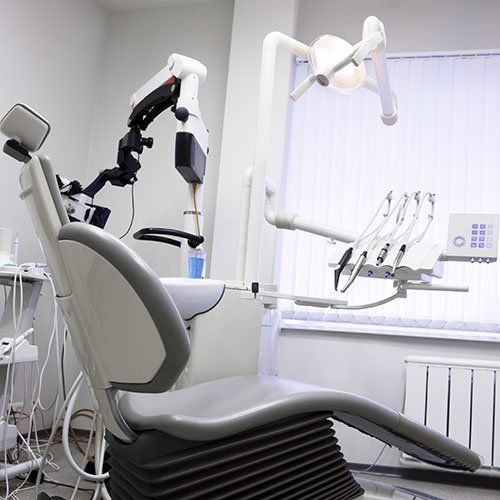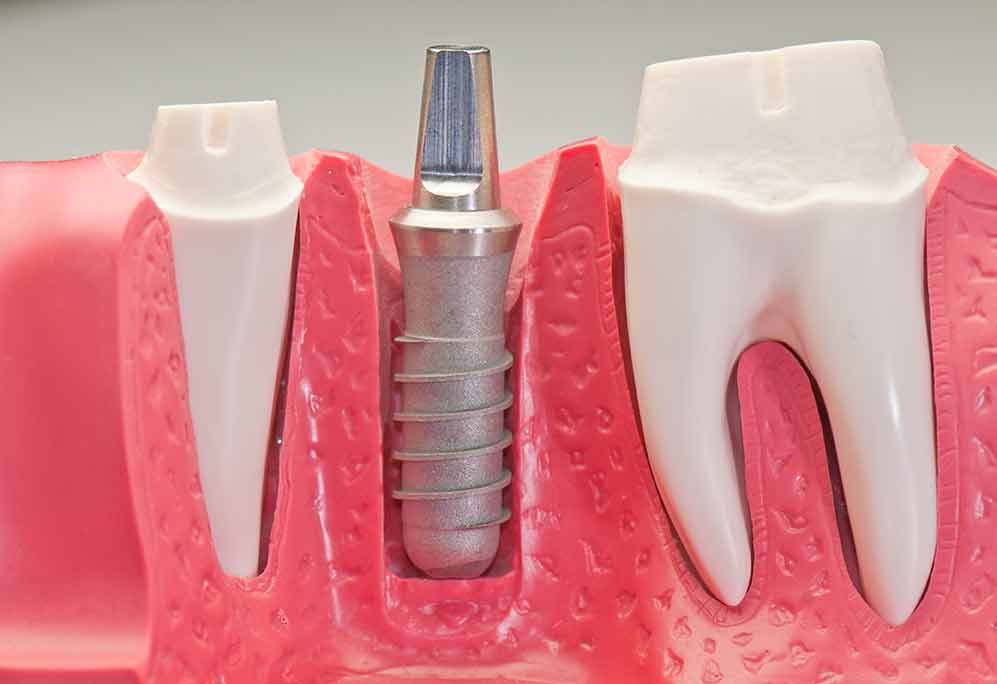Impacted Wisdom Tooth Aches
- By Admin
- •
- 08 Sep, 2017
- •

If you refuse to see an oral surgeon about your aching partially impacted wisdom tooth, you may regret your decision later. Wisdom teeth that don't erupt completely out the jawbone can become infected with bacteria. The infection can spread to the structures supporting the tooth, including the jawbone and gum tissue surrounding the tooth.
Here are things that could happen if you don't see an oral surgeon about your partially impacted wisdom tooth.
Here are things that could happen if you don't see an oral surgeon about your partially impacted wisdom tooth.
What Happens If You Don't Seek Treatment?
Because of their impressive size, wisdom teeth (third molars) can take up a great deal of space in the mouth. In order to find enough room in the mouth, some wisdom teeth turn sideways or horizontally in their tooth sockets. The abnormal positions prevent the molars from erupting properly or at all. The teeth become impacted.
Although not all impacted teeth hurt, some can. Pain can develop when an impacted tooth places pressure on the nerves traveling through the back of the jaws. The pain can travel to other areas of the face and head. Some individuals can experience headaches from infected and impacted third molars.
If a cavity develops in the tooth's crown, it can possibly lead to a bacterial infection. The infection may spread to the soft tissues (pulp) inside the tooth, or bacteria can infect the gum tissue surrounding the tooth. If the infection affects the gums, it can trigger pericoronitis.
Pericoronitis is an infection that develops around the crown of a partially erupted tooth. The symptoms of pericoronitis may include pain in the site, as well as redness and swelling in the gums. The infection may make it very difficult to clean the surface of the exposed crown.
If the infection leaves your gums or pulp tissues and spreads to the tooth's roots, it may potentially cause an abscess. Abscesses contain pus, white blood cells, and other substances used by the immune system to fight injuries and inflammations. Abscesses can increase in size over time and press against the bone tissue of your jaw.
To prevent these problems and those mentioned above, take action now.
Although not all impacted teeth hurt, some can. Pain can develop when an impacted tooth places pressure on the nerves traveling through the back of the jaws. The pain can travel to other areas of the face and head. Some individuals can experience headaches from infected and impacted third molars.
If a cavity develops in the tooth's crown, it can possibly lead to a bacterial infection. The infection may spread to the soft tissues (pulp) inside the tooth, or bacteria can infect the gum tissue surrounding the tooth. If the infection affects the gums, it can trigger pericoronitis.
Pericoronitis is an infection that develops around the crown of a partially erupted tooth. The symptoms of pericoronitis may include pain in the site, as well as redness and swelling in the gums. The infection may make it very difficult to clean the surface of the exposed crown.
If the infection leaves your gums or pulp tissues and spreads to the tooth's roots, it may potentially cause an abscess. Abscesses contain pus, white blood cells, and other substances used by the immune system to fight injuries and inflammations. Abscesses can increase in size over time and press against the bone tissue of your jaw.
To prevent these problems and those mentioned above, take action now.
What Can You Do About Your Wisdom Tooth?
The most important thing you can do is see an oral surgeon. Impacted teeth can be dangerous if you don't treat them as soon as possible. Some impacted wisdom teeth can decay inside their sockets or develop cysts. The infection may also spread to your sinus cavity, ears, or neck.
An oral surgeon will generally take pictures of your entire head with an x-ray machine. X-rays can show an surgeon the size and location of the impacted tooth, as well as other locations the tooth could potentially affect. It's possible for an impacted tooth to create problems in the sinus cavity.
If the tooth does have an infection, a surgeon will most likely ask you to take antibiotics before they proceed with an extraction. Attempting to remove the tooth (extract) while it's actively infected can be dangerous. The infection can open up and spread bacteria to nearby tissues.
After your antibiotics take care of the infection, an oral surgeon will remove the tooth. To access the tooth properly, a surgeon may need to cut or remove some of the gum tissue covering the tooth. Once the dental surgeon has access to the tooth, they'll slowly remove it.
You can help your surgical site heal properly by rinsing your mouth with warm salt water. The provider or their assistant will give you detailed home care instructions to follow before you leave the office. If you have concerns about your home care, tell the dentist immediately.
If you need to learn more about impacted wisdom teeth, contact the professionals at offices of The Oral & Maxillofacial Surgery Center, P.A. today.
An oral surgeon will generally take pictures of your entire head with an x-ray machine. X-rays can show an surgeon the size and location of the impacted tooth, as well as other locations the tooth could potentially affect. It's possible for an impacted tooth to create problems in the sinus cavity.
If the tooth does have an infection, a surgeon will most likely ask you to take antibiotics before they proceed with an extraction. Attempting to remove the tooth (extract) while it's actively infected can be dangerous. The infection can open up and spread bacteria to nearby tissues.
After your antibiotics take care of the infection, an oral surgeon will remove the tooth. To access the tooth properly, a surgeon may need to cut or remove some of the gum tissue covering the tooth. Once the dental surgeon has access to the tooth, they'll slowly remove it.
You can help your surgical site heal properly by rinsing your mouth with warm salt water. The provider or their assistant will give you detailed home care instructions to follow before you leave the office. If you have concerns about your home care, tell the dentist immediately.
If you need to learn more about impacted wisdom teeth, contact the professionals at offices of The Oral & Maxillofacial Surgery Center, P.A. today.

An oral-maxillofacial surgeon is one who operates on the mouth and surrounding tissues. However, it's a little more in depth than that. Oral-maxillofacial surgery involves diagnosing diseases and prescribing treatments for them as well as treating injuries and defects of the maxillofacial area. Oral-maxillofacial surgeons work on both functional and aesthetic aspects of your mouth.
While there are a variety of reasons you may seek out an oral-maxillofacial surgeon, below are five of the most common.

Temporomandibular joint disorder, or TMD as it is commonly referred to, is a common and frustrating condition. Though it generally manifests as an achy or painful jaw, it may lead to a host of more serious issues, from abscesses to infections. Such issues are both highly uncomfortable and quite costly.
Unfortunately, many people suffer from TMD without ever realizing it--simply because they are not familiar with this condition. If you would like to improve your knowledge of this frequently experienced dental disorder, read on. This article will provide you with a useful overview of the symptoms, causes, and treatments of TMD.
Unfortunately, many people suffer from TMD without ever realizing it--simply because they are not familiar with this condition. If you would like to improve your knowledge of this frequently experienced dental disorder, read on. This article will provide you with a useful overview of the symptoms, causes, and treatments of TMD.

If you’re over the age of 18, it’s likely that you’ll need to have your wisdom teeth
removed at some point in the future. This is usually done in your late teens or early twenties, but it’s possible to have your teeth extracted later in life if they’re causing a problem. If you’re on the fence about whether to have your wisdom teeth removed, follow these guidelines.









